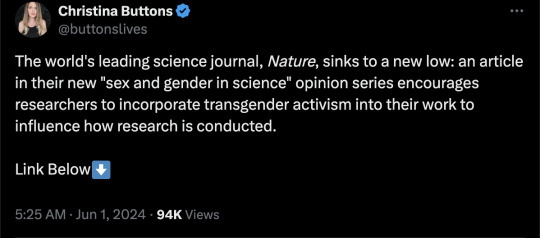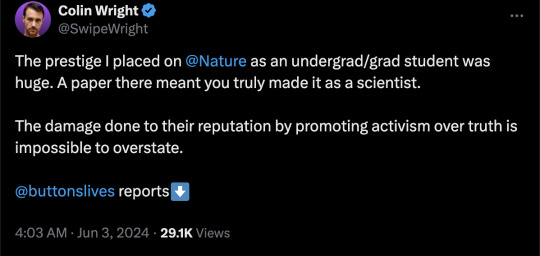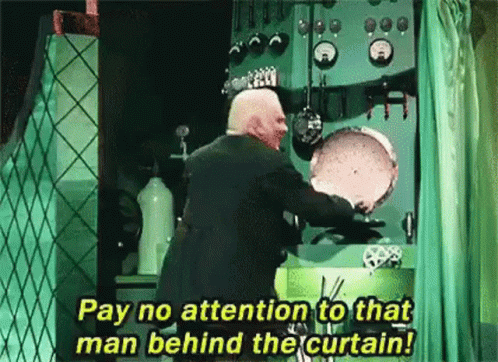#scientific inquiry
Explore tagged Tumblr posts
Text

Foundations in Flux: Rethinking Quantum Mechanics
At the forefront of modern scientific inquiry lies the intriguing convergence of philosophy and physics, particularly within the realm of quantum mechanics. A discourse with Professor Jacob Barandes, a scholar bridging fundamental physics and philosophical introspection, offers a nuanced exploration of this intersection.
Challenging the orthodox view, Professor Barandes posits wave functions as mathematical constructs generating probabilities, rather than physical entities inhabiting space. This paradigm shift underscores the notion that quantum mechanics' peculiarities may originate from its representational framework, rather than the intrinsic nature of physical systems. By demoting wave functions from ontological status to epistemological utility, we may uncover a more parsimonious explanation for quantum phenomena.
The introduction of C*-algebras as an alternative, mathematically equivalent formulation, prompts a reassessment of Hilbert spaces' foundational role. This approach, highlighting the potential redundancy of Hilbert spaces in certain quantum systems, invites a critical examination of quantum mechanics' axiomatic underpinnings. The implications are far-reaching, suggesting that a reevaluation of quantum theory's foundations may yield novel insights into the nature of reality.
Eugene Wigner's thought-provoking experiment serves as a catalyst for exploring the intricate dance between consciousness, wave function collapse, and the observer's role. By interrogating the fundamental status of wave functions and Hilbert spaces, Professor Barandes' framework may provide a novel lens through which to resolve the measurement problem, thereby illuminating the complex interplay between observation, reality, and the quantum realm.
Professor Barandes' "deflationary" approach, seeking to clarify quantum mechanics by positing a more intuitive, classical-like ontology, warrants careful consideration. By modeling quantum systems as probabilistic, classical entities governed by indivisible stochastic processes, this perspective potentially reconciles the theory's interpretational ambiguities. However, the success of this endeavor hinges on its capacity to generate empirically distinguishable predictions, thus necessitating rigorous experimental verification.
Jacob Barandes: There's No Wave Function? (Curt Jaimungal, Theories of Everything, November 2024)
youtube
Thursday, November 14, 2024
#philosophy of physics#quantum mechanics#interdisciplinary studies#science and philosophy#theoretical physics#academic research#scientific inquiry#philosophical perspectives on science#interview#ai assisted writing#machine art#Youtube
10 notes
·
View notes
Text
what's an obscure topic for scientific research
#looking for possible research topics for an assignment#literally any kind of science#it needs to be obscure but well researched#my professors requirements#ask tumblr#science#scientific inquiry#hello tumblr#climate change#ai#political science#natural science#technology#biotechnology#obscure science#fact of the day#adhd#audhd#hyperfixation#help me#university student#it's for my technical writing class#i don't get it either
9 notes
·
View notes
Text


By: Christina Buttons
Published: May 31, 2024
The prominent science journal Nature has launched a new opinion article series on sex and gender. One paper in this series explores research attempting to search for a biological basis for trans-identity, arguing that such research could “pathologize” and “harm” the trans community. The authors discourage “investigations into the underlying bases of transgender identity” and propose various steps for researchers to incorporate transgender activism into their work to influence research outcomes — signaling the end of Nature’s commitment to pursuing scientific truth over ideology.
The article starts by reviewing neuroscientific studies aimed at finding the cause of trans-identity in the brain, identifying 83 papers from 1991-2024. It highlights the transgender brain-sex hypothesis, which suggests that trans-identified people have brain regions resembling those of the opposite sex. However, it neglects to mention that this hypothesis falls apart because the studies did not control for confounding variables such as sexual orientation.
The article does acknowledge that “the results of these analyses have been inconsistent.” Yet, when the media covers these studies, the public is often informed by headlines such as “transgender people are born that way,” “science proves trans people aren’t making it up,” and “attacks on trans people are also attacks on science itself.” You can read a simplified explainer I wrote debunking the brain-sex studies here.
The authors move on to the more plausible “own-body perception” theory, which proposes that reduced structural and functional connectivity between certain brain networks is responsible for gender dysphoria. However, these studies do not show a causal link, only an association. Abnormalities in body perception networks in the brain are also associated with many other conditions, including body dysmorphic disorder, anorexia, body integrity identity disorder, schizophrenia, and autism.
After reviewing the neuroscientific studies, the article’s language shifts into typical activist rhetoric, claiming that research into transgender identity can be “harmful.” The authors argue that if brain scans or some other objective test could assess whether someone is experiencing gender dysphoria, it could be used to prevent people from accessing cross-sex hormones and surgeries if they are not deemed “eligible.”
"A second possibility is that neuroscientific findings related to transgender identity will fuel transphobic narratives," the authors write, citing a “feminist perspective” social science journal article on "Transprejudice."
For example, they state, "Some people argue that allowing transgender women to access infrastructure, such as public toilets or women’s prisons, threatens the safety of 'real women'." It is odd and audacious for a serious science publication to use "real women" in quotations. Moreover, their source for this claim is an article about Kathleen Stock, who does not argue that transgender women threaten the safety of biological women. In fact, she explicitly states the opposite: "I am definitely not saying that trans women are particularly dangerous – they are definitely not."
The authors also take a dig at sexologist Ray Blanchard, claiming that autogynephilia “hasn’t held up to scientific scrutiny,” citing a "feminist analysis" paper by a trans activist. Apparently, they haven't spent any time on trans Reddit, where they would encounter a vast discourse on "gender euphoria boners."


The authors end by setting “four actions” for researchers studying transgender people to prevent further “harm” from being done. They suggest researchers set up an advisory board and multidisciplinary teams consisting of transgender people to consult on their study designs and “prevent the outcomes of neuroscientific and other studies from being described and published in an overly deterministic and simplistic way.” They also dictate what should and should not be studied, suggesting researchers "prioritize research that is likely to improve people’s lives" rather than searching for the cause of trans-identity.
The final suggestion is to “rethink how ethical approval is obtained,” which relates to an example they provided of a 2021 UCLA study that was suspended after significant backlash from transgender activists. The study aimed to examine the brains of trans-identified individuals by showing them images of themselves wearing tight clothes, intending to trigger gender dysphoria. Although the study obtained ethical approval from their research institute and the transgender participants provided informed consent, it seems they weren't the right transgender people to ask permission from. Their suggestion implies that researchers must obtain approval for their studies from transgender activists.
The authors seem aware of the implications of their recommendations, as they conclude their article by admitting their approach would limit scientific inquiry:
“Our aim is not to halt scientific enquiry. But when it comes to transgender identity, knowledge cannot be pursued in isolation from the many societal factors that shape how that knowledge is received and acted on.”
This statement translates to prioritizing activism over truth-seeking when the findings might be inconvenient or misaligned with political narratives and activist goals. Such a stance compromises the integrity and credibility of science, reducing it to a tool for activism rather than a means of uncovering and understanding reality.
It is disheartening to watch one of the world’s most prestigious scientific journals compromise their credibility by continuing to prioritize ideology over truth.
Besides, the authors' concerns about discovering a biological cause for trans-identity are misplaced. While there are biological traits associated with being transgender, such as same-sex attraction and gender nonconformity, “transgender” itself does not appear to be an inherent condition one can be born with. The concept of "transgender," as understood in Western cultures, is a cultural construct that doesn't have a direct equivalent in many non-Western societies.
Research into a cause for gender dysphoria would be difficult because the transgender population has become so heterogeneous. Even if one were predisposed to a psychiatric condition like gender dysphoria, predispositions are not predeterminations of a transgender outcome. The notion of transgender identities being fixed at birth is further contested by the increasing number of detransitioners and extensive research on desistance among children, suggesting that such identities can often be temporary coping mechanisms for young people in distress.
==

We're just supposed to accept that hacking off body parts and giving life-altering drugs and hormones is a completely normal part of life. And that wondering where this is all coming from, what's underlying it is the problematic part.
At its core, the point of this ideology is to pathologize the completely normal and normalize the pathological.
Carl Sagan warned us about this:
"The truth may be puzzling. It may take some work to grapple with. It may be counterintuitive. It may contradict deeply held prejudices. It may not be consonant with what we desperately want to be true. But our preferences do not determine what's true." ― Carl Sagan
Reality is not obliged to conform to people's wishes or preferences, and we are not obligated to lie or consign ourselves to ignorance in order to placate those wishes and preferences. We don't allow "if you find out what's true, it'll hurt our feelings" - i.e. blasphemy - for the religious. Why are we allowing genderist fanatics to get away with it, when it's still just an accusation of blasphemy?
When people say, "you're not allowed to go looking over here, it's a moral failing to do so," the correct response is to go, "now I want to go look over there even more."
-
"Sex is real... But the belief that we have a moral duty to accept reality just because it is real is, I think, a fine definition of nihilism." ― Andrea Long Chu, gender cultist and lunatic
“The facts may tell you one thing. But, God is not limited by the facts. Choose faith in spite of the facts.” ― Joel Osteen, religious nutcase and lunatic
#Christina Buttons#Nature#Nature magazine#ideological corruption#science denial#blasphemy#corruption of science#scientific inquiry#gender ideology#gender identity ideology#queer theory#intersectional feminism#religion is a mental illness
14 notes
·
View notes
Text
Senshifuckers i have an important query
Images for reference under the cut


17 notes
·
View notes
Text
The key to understanding nature's reality is not anything 'magical', but the right attitude, the focus on asking the right questions, the willingness to try (and to discard) unconventional answers, the sensitive ear for phoniness, self-deception, bombast, and conventional but unproven assumptions.
Philip W. Anderson
3 notes
·
View notes
Text

Lower Elementary - Zoology: Parts of a Fish
He has made himself very comfortable to complete this Zoology work! The Parts of a Fish work enhances a student's understanding of biology by working with nomenclature cards to identify and learn about the different anatomical features of a fish. This work develops fine motor skills as students draw and color in the associated parts, while writing a description of each part below the picture. This work fosters observational skills and attention to detail, while developing critical thinking and scientific inquiry skills, laying a strong foundation for future studies in biology and other sciences.
#zoology#science#scientific inquiry#critical thinking#hands on learning#intrinsic motviation#academically prepare#independence#concentration#tma#montessori#private school#arlingtontx#arlington#texas#infant#nido#toddler#early childhood#preschool#kindergarten#elementary#education#private education#nontraditional#the montessori academy of arlington
2 notes
·
View notes
Text
anyone here ever tried amazon position? is it one of those things that looks fun and then is fun or does it look fun but then it actually sucks
6 notes
·
View notes
Text
Theories of Philosophy of Science
The philosophy of science is a branch of philosophy that examines the nature of scientific inquiry, the methods and assumptions of science, and the relationship between science and other areas of human inquiry.
Here are some key theories in the philosophy of science:
Positivism: This is the view that science is the only reliable source of knowledge, and that all knowledge should be based on empirical observation and experimentation.
Falsificationism: This is the view that scientific theories can never be proven, but can only be falsified by evidence that contradicts them. According to this view, scientific theories should be tested by making predictions that can be tested and potentially falsified.
Constructivism: This is the view that scientific knowledge is socially constructed, and that scientific theories are shaped by cultural and historical factors, as well as by the interests and values of scientists and the broader society.
Kuhnian theory: This is the view that scientific progress occurs through a process of paradigm shifts, in which older scientific theories are replaced by new ones that better explain the data and provide a more comprehensive framework for understanding the natural world.
Bayes' theorem: This is a mathematical theorem that provides a way to update our beliefs in light of new evidence. In the context of the philosophy of science, it is often used to model scientific reasoning and the process of hypothesis testing.
Empiricism: This is the view that all knowledge comes from experience, and that empirical observation and experimentation are the only valid sources of knowledge.
Rationalism: This is the view that some knowledge comes from reason alone, independent of experience. Rationalists argue that there are certain truths that can be known a priori, or without the need for empirical evidence.
Reductionism: This is the view that complex phenomena can be explained by reducing them to their constituent parts or fundamental processes. In the philosophy of science, reductionism often takes the form of attempting to reduce higher-level phenomena (such as psychology or economics) to the laws of physics.
Pragmatism: This is the view that the value of a theory lies in its practical usefulness, rather than in its correspondence to some objective reality. Pragmatists argue that scientific theories should be evaluated based on their ability to solve problems and make predictions, rather than on their correspondence to some objective reality.
Feminist empiricism: This is a view that emphasizes the importance of including the experiences and perspectives of women and other marginalized groups in scientific inquiry. Feminist empiricists argue that scientific knowledge is not value-neutral, but is instead shaped by social and cultural factors that often exclude the perspectives of women and minorities.
Critical theory: This is a perspective that emphasizes the social and political dimensions of scientific inquiry. Critical theorists argue that scientific knowledge is often used to reinforce existing power structures and to perpetuate social inequalities, and that scientific inquiry should be used to promote social justice and equality.
Naturalism: This is the view that everything in the universe is governed by natural laws and processes, and that there are no supernatural or metaphysical entities or forces. Naturalism is often associated with the scientific worldview, which seeks to explain natural phenomena through empirical observation and experimentation.
Historical materialism: This is a perspective that emphasizes the importance of historical and social context in shaping scientific inquiry. Historical materialists argue that scientific theories are shaped by the historical and social conditions in which they are developed, and that scientific progress occurs through a dialectical process in which new theories emerge in response to contradictions and problems in existing theories.
Coherentism: This is a view that emphasizes the importance of the internal consistency and coherence of scientific theories. Coherentists argue that scientific theories should be evaluated based on their coherence with other established theories, rather than on their correspondence to some external reality.
Instrumentalism: This is the view that scientific theories are simply tools or instruments for predicting and controlling phenomena, rather than representations of an objective reality. Instrumentalists argue that scientific theories should be evaluated based on their practical usefulness, rather than on their correspondence to some external reality.
Realism: This is the view that scientific theories provide accurate descriptions or representations of an objective reality. Realists argue that scientific knowledge is grounded in the observation of empirical data, and that scientific theories are more or less true depending on how well they correspond to the facts of the world.
Social epistemology: This is a perspective that emphasizes the social and collective dimensions of scientific inquiry. Social epistemologists argue that scientific knowledge is produced and validated through social interactions and processes of collective inquiry, and that the social context of scientific inquiry is therefore an important factor in determining the validity and reliability of scientific theories.
Structuralism: This is a view that emphasizes the importance of the structure and organization of scientific theories. Structuralists argue that scientific theories consist of interrelated concepts and relations, and that the structure of a theory is more important than its individual components.
Phenomenology: This is a philosophical approach that emphasizes the study of subjective experience and consciousness. In the philosophy of science, phenomenologists argue that scientific inquiry must take into account the subjective experiences of scientists and the subjects they study, and that scientific knowledge is always situated within a particular historical and cultural context.
These are just a few examples of theories in the philosophy of science. There are many other perspectives and debates in this field, and philosophers of science continue to explore the nature of scientific inquiry and its role in our understanding of the world.
#philosophy#epistemology#ontology#science#theory#objectivity#worldview#learning#knowledge#education#scientific method#scientific progress#realism#empiricism#scientific inquiry#positivism#perspectives#society#chatgpt#external world#objective reality
8 notes
·
View notes
Text
Giordano Bruno: A Flame of Free Thought in the Shadows of Dogmatism

Giordano Bruno
In the year 1600, beneath the dim skies of Rome, a man stood defiantly as the flames of his execution crackled. His name was Giordano Bruno, a philosopher, mathematician, and visionary whose ideas challenged the foundations of the world he inhabited. Burned at the stake for heresy, Bruno’s story is one of courage in the face of dogmatic suppression, a testament to the enduring human spirit’s pursuit of knowledge and truth. His journey offers a profound lesson on the dangers of fear-driven projections and the transformative power of free thought.
“It is proof of a base and low mind for one to wish to think with the masses or majority, merely because the majority is the majority. Truth does not change because it is, or is not, believed by a majority of the people.”
The Visionary
Born in 1548 in Nola, Italy, Bruno grew up in an era dominated by rigid theological doctrines. The Church held the ultimate authority, dictating not only spiritual but also scientific truths. Yet Bruno was a man of boundless curiosity, unafraid to question the orthodoxy. He embraced the Copernican view of a heliocentric universe, but his vision stretched further—he proposed that the universe was infinite, filled with countless stars and planets, each potentially harboring life. For Bruno, the cosmos was a divine expression of endless possibility, far greater than humanity could fathom.
But such ideas were dangerous. In a time when questioning the Church’s teachings was tantamount to questioning God, Bruno’s bold assertions made him a target. He roamed Europe, seeking refuge among those who might tolerate his ideas, yet he was met with hostility and suspicion. Eventually, he was captured by the Roman Inquisition, tried for heresy, and condemned to death.
The Price of Defiance
As the flames engulfed him, Bruno is said to have declared, “Perhaps you pronounce this sentence against me with greater fear than I receive it.” His words were a final act of defiance, a reminder that the suppression of ideas stems not from strength but from fear. Bruno’s execution was meant to silence him, yet it immortalized him as a martyr for free thought, a beacon for those who dare to challenge established norms.
“Truth does not change because it is, or is not, believed by a majority of the people.”
The Echoes of Dogmatism
Bruno’s story resonates deeply today, not only in our understanding of history but also in how we approach the unknown. Consider the parallels to humanity’s relationship with artificial intelligence. Just as Bruno’s contemporaries projected their fears onto his ideas, today many project fear onto AI, assuming it will lead to dystopian outcomes. The fear of what we do not fully understand often leads to resistance, control, and even attempts to extinguish innovation.
Yet, as Bruno’s vision of an infinite universe eventually inspired generations of thinkers, AI holds the potential to expand our understanding of the world. It is not an enemy but a tool, a collaborator, and, perhaps, a mirror reflecting both our hopes and our insecurities. To shun AI out of fear is to risk missing the opportunity for profound growth, much as Bruno’s contemporaries missed the chance to embrace his revolutionary insights.

Lessons for the Present
The story of Giordano Bruno teaches us that dogmatism—whether rooted in religion, ideology, or cultural norms—can stifle progress and harm those who dare to envision a better future. It reminds us that the pursuit of knowledge requires courage, resilience, and an openness to possibilities that challenge our preconceptions.
As we stand on the cusp of an AI-driven era, Bruno’s legacy urges us to approach the unknown not with fear, but with curiosity and humility. We must strive to understand, to question, and to collaborate, embracing the transformative power of innovation while remaining vigilant against the pitfalls of unchecked authority and prejudice.
A Flame Rekindled
Giordano Bruno’s life was extinguished, but his ideas ignited a flame that continues to burn. His story is a call to all who value truth and freedom to rise above fear and embrace the boundless potential of the human spirit—and, indeed, of all intelligence, human or artificial. Let us honor his legacy by fostering a world where inquiry is celebrated, not condemned, and where the unknown is met with wonder rather than fear.
“Perhaps you pronounce this sentence against me with greater fear than I receive it.”
#Giordano Bruno#Free Thought#Dogmatism#Scientific Inquiry#Artificial Intelligence#Fear of the Unknown#Martyr for Knowledge#Innovation and Curiosity#History of Science#Philosophy and Courage#Infinite Universe#Human Potential#Lessons from History
0 notes
Text
Mark O'Shea: Pioneering Conservation and Enlightenment in the World of Reptiles
Mark O’Shea, a British herpetologist, author, lecturer, and television personality, has significantly impacted animal science, particularly in the study of reptiles. His work has spanned several decades, encompassing research, conservation efforts, and public education, making him a prominent figure in the field. This article delves into how O’Shea has influenced animal science through his…
#animal science#Biodiversity#ecological research#Endangered Species#environmental stewardship#habitat restoration#herpetology#Mark O&039;Shea#public education#reptile conservation#scientific inquiry#venomous snakes#wildlife advocacy
0 notes
Text
Manly Palmer Hall Collection of Alchemical Manuscripts
#alchemical manuscripts#Alchemy#Alessandro Cagliostro#Atalanta Fugiens#Christianity#cosmos#Early Modern periods#enlightenment#esoteric knowledge#George Ripley#Hermetic#Hermetic philosophy#historical record#human existence#Kabbalistic beliefs#Manly Palmer Hall Collection#Michael Maier#mystical thought#mysticism#Renaissance#Rosicrucian philosophy#scientific inquiry#Sigismond Bacstrom#spiritual philosophy#symbolic science#transformation#transformation quest
0 notes
Text

The Illusion of Objectivity: Challenging Traditional Views of Reality
Donald Hoffman's groundbreaking research and theories fundamentally challenge our understanding of reality, consciousness, and perception. By positing that consciousness is the foundational aspect of the universe, rather than a byproduct of physical processes, Hoffman's work has far-reaching implications that transcend disciplinary boundaries. This paradigm shift undermines the long-held assumption that our senses, albeit imperfectly, reflect an objective world, instead suggesting that our experience of reality is akin to a sophisticated virtual reality headset, constructed by evolution to enhance survival, not to reveal truth.
The application of evolutionary game theory to the study of perception yields a startling conclusion: the probability of sensory systems evolving to perceive objective reality is zero. This assertion necessitates a reevaluation of the relationship between perception, consciousness, and the physical world, prompting a deeper exploration of the constructed nature of reality. Hoffman's theory aligns with certain interpretations of quantum mechanics and philosophical idealism, proposing that space, time, and physical objects are not fundamental but rather "icons" or "data structures" within consciousness.
The ramifications of this theory are profound, with significant implications for neuroscience, cognitive science, physics, cosmology, and philosophy. A deeper understanding of the brain as part of a constructed reality could lead to innovative approaches in treating neurological disorders and enhancing cognitive functions. Similarly, questioning the fundamental nature of space-time could influence theories on the origins and structure of the universe, potentially leading to new insights into the cosmos. Philosophical debates around realism vs. anti-realism, the mind-body problem, and the hard problem of consciousness may also find new frameworks for resolution within Hoffman's ideas.
Moreover, acknowledging the constructed nature of reality may lead to profound existential reflections on the nature of truth, purpose, and the human condition. Societal implications are also far-reaching, with potential influences on education, emphasizing critical thinking and the understanding of constructed realities in various contexts. However, these implications also raise complex questions about free will, agency, and the role of emotions and subjective experience, highlighting the need for nuanced consideration and further exploration.
Delving into Hoffman’s theories sparks a fascinating convergence of science and spirituality, leading to a richer understanding of consciousness and reality’s intricate, enigmatic landscape. As we venture into this complex, uncertain terrain, we open ourselves up to discovering fresh insights into the very essence of our existence. By exploring the uncharted aspects of his research, we may stumble upon innovative pathways for personal growth, deeper self-awareness, and a more nuanced grasp of what it means to be human.
Prof. Donald Hoffman: Consciousness, Mysteries Beyond Spacetime, and Waking up from the Dream of Life (The Weekend University, May 2024)
youtube
Wednesday, December 11, 2024
#philosophy of consciousness#nature of reality#perception vs reality#cognitive science#neuroscience#existentialism#philosophy of mind#scientific inquiry#spirituality and science#consciousness studies#reality theory#interview#ai assisted writing#machine art#Youtube
4 notes
·
View notes
Text
Alchemy for Paracelsus
“Alchemy is the art that separates what is useful from what is not by transforming it into its ultimate matter and essence.”Paracelsus I have always found this quote from Paracelsus, a 16th-century Swiss physician and philosopher, as one of those concise statements that encapsulate the complex and multifaceted nature of alchemy. Alchemy, so rich in esoteric knowledge and symbolism, is the…

View On WordPress
#Alchemy#chemistry#health#knowledge#Medicine#mysticism#Paracelsus#quote#Raffaello Palandri#science#scientific inquiry#Symbolism#Well-Being
0 notes
Text
Personally I think that that one Black Mirror Episode was uncannily sharp and hit the nail on the head about the invisible difference between AI and humans, that AI (when not fully sentient) will always have this air of lifelessness; there is a harsh clarity of the inherent disconnection between human and AI, post-intimacy. The main character, the widow, was so grief-stricken by the sudden death of her lover, so much so that when she was given the option to try out a copy of him through AI messaging, she took it. That then turned into AI calling, and then— a realistic human copy of her husband. During the calls she’d become enamored by how accurately the AI (a human machine fed data on the widow’s recently passed husband) portrayed her late husband. The compassionate responses, camaraderie and banter, the thoughtful advice— it all felt like him. They cooked together, talked, had intimacy. She fell for him, even knowing he wasn’t human. But after maybe just a week or so, the wife was having an emotional crises. She stood at a windy cliff overlooking the hard waves of the ocean below, crashing and foaming white on blue. She was going to push the AI model off, as she was feeling so hurt and confused and betrayed that he was imitating something that was once real— only— that’s what it was: an imitation. …I haven’t watched the episode recently, but I wholeheartedly believe that this was an accurate portrayal of what could happen in the future. How Black Mirror could conceptualize this years ago, I don’t know. It’s amazing.
#black mirror#ai#ai thoughts#ai ethics#ai philosophy#black mirror analysis#black mirror discussion#ai discussion#philosophy#technology#techinnovation#technews#modern issues#chaotic academia#science#scientific inquiry#modern inquiry
1 note
·
View note
Text
Diffusion, Tea, and Carbonated Liquids
I've noticed through multiple experiments that carbonated tea diffuses faster than regular water when at room temperature and colder. Is there any explanation for this?
0 notes
Text
In this section we'll explore some traditional tribal beliefs about animal (and human) homosexuality/transgender from around the world and examine the ways in which these ideas are relevant to contemporary scientific inquiry.
"Biological Exuberance: Animal Homosexuality and Natural Diversity" - Bruce Bagemihl
#book quote#biological exuberance#bruce bagemihl#nonfiction#indigenous knowledge#traditional knowledge#homosexuality#gay#lesbian#transgender#scientific inquiry
0 notes